Discover the Croatian Danube: House of Magnificent Milutin Milankovic
November 9, 2022 – As part of our Croatian Danube series, TCN has visited Dalj, and we can say that we have been to what must be the most important house in the village. One that many people had no idea stood there for over 150 years now. Even though NASA named Milutin Milankovic one of the 15 greatest scientists of all time, he might be one of the most underrepresented and underrated in Croatia.
Milutin Milankovic, the astronomer, geophysicist, climatologist, mathematician, inventor, engineer, Doctor of Technology, university professor, and writer, was born in Dalj in 1879, in what was the Austro-Hungarian Empire. He studied in Osijek and acquired his diploma and Ph.D. in Vienna, where he worked as an engineer until 1909. He then became a university professor in Belgrade, where he worked until 1955. He was a member of the Serbian and Croatian Academies of Sciences and Arts. He spent WWI in internment in Budapest. He died in Belgrade in 1958. His remains were, per his wish, taken back to Dalj in 1966, where he was buried in his family tomb, along with his twin sister, brothers, parents, and many of his ancestors.
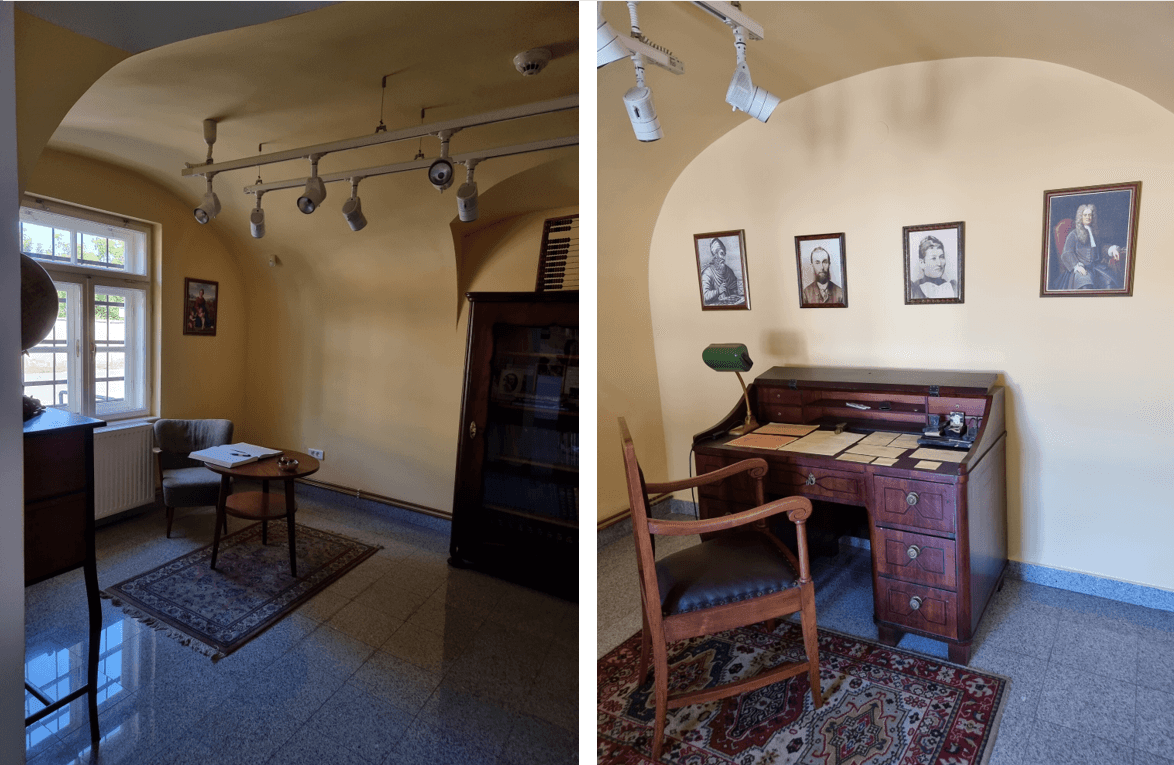
His contribution to science was vast and significant. Without pretending that we can understand his scientific work, just the list of his works and publications would impress any reader. His primary focus was on cosmic questions and life on Earth, the sun, ice ages, and how they influenced life on Earth. Some of his most famous work revolves around the Earth's orbital cycles, a theory confirmed by NASA, in which he provided mathematical explanations of the reasons, causes, frequency, and duration of ice ages on Earth, as well as other aspects of the Earth’s climate. Milutin Milankovic is also the author of the most precise calendar to date, with a difference of only 2 seconds between Milutin’s calendar year and the currently in use tropical (solar) year.
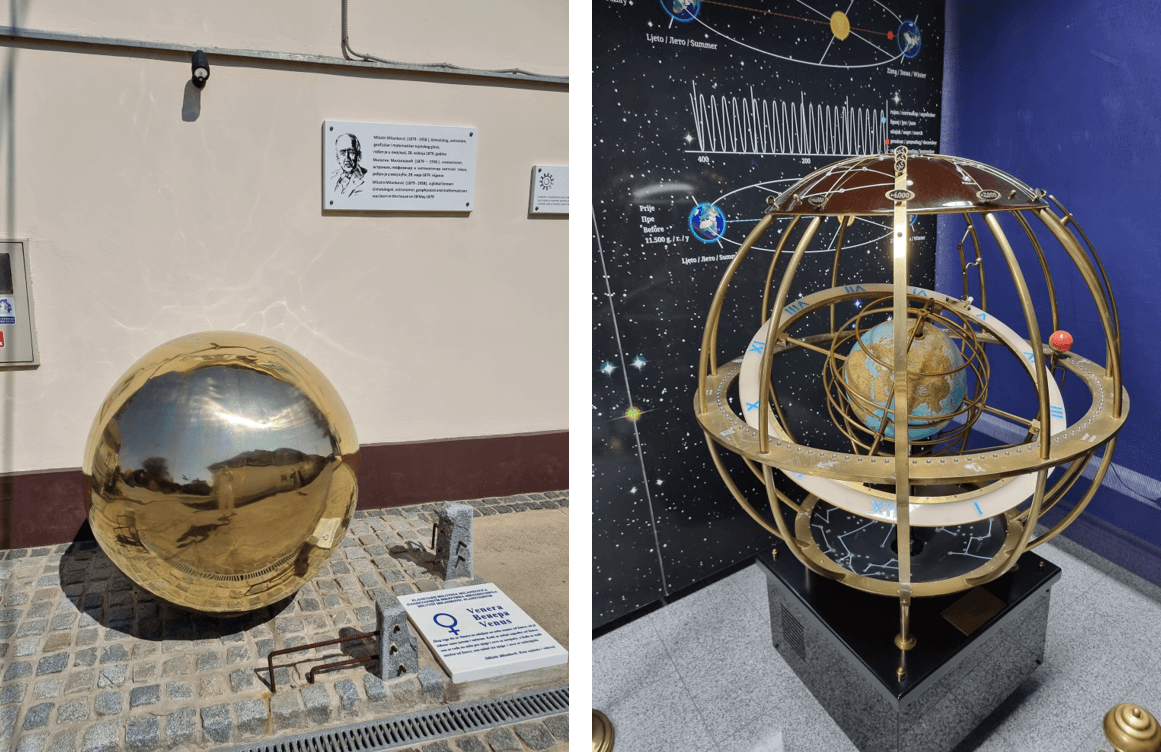
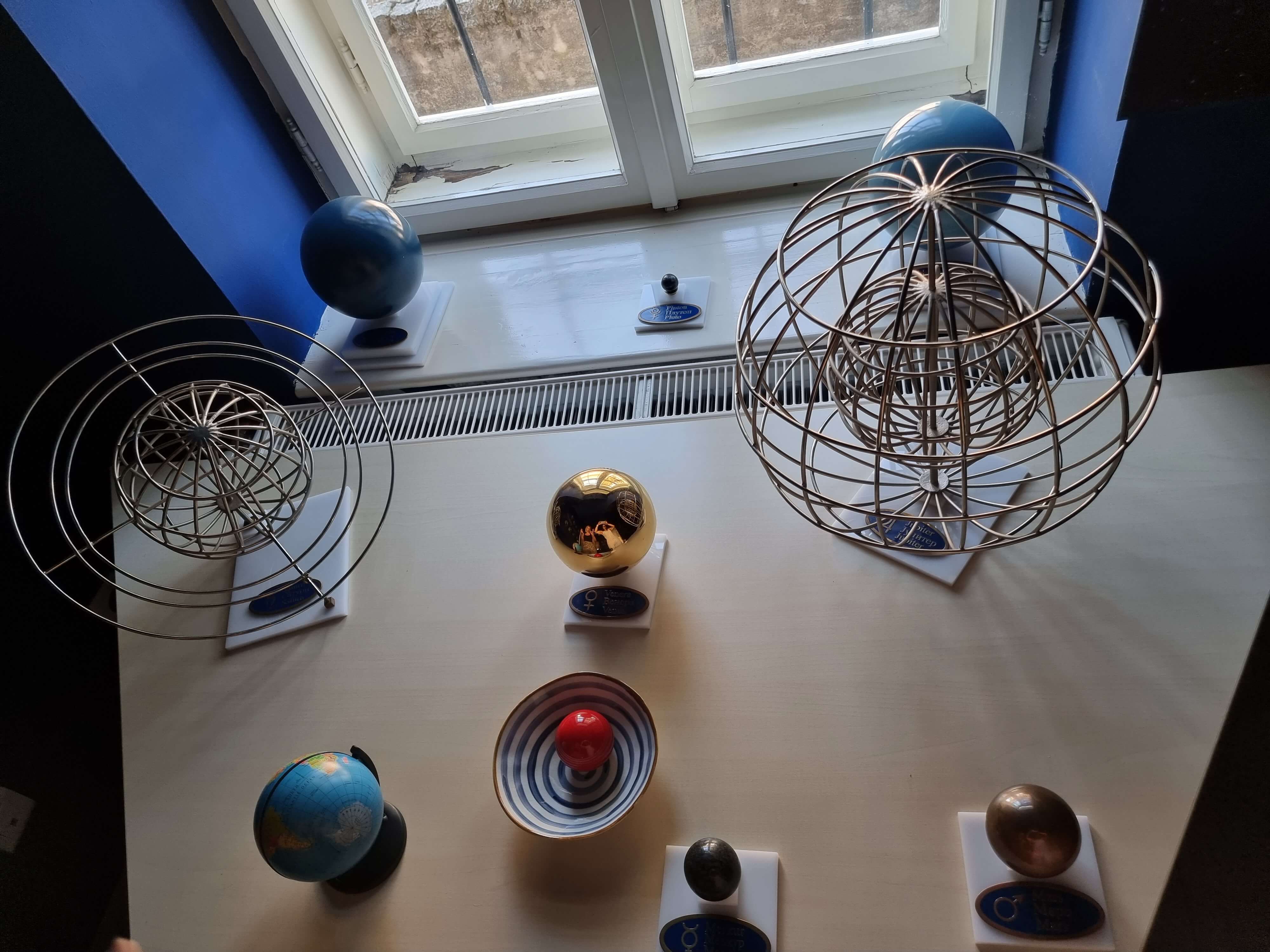
Along with scientific writing, Milankovic was versed in lyrical prose and wrote three volumes of memoirs on his life, his birth house, the village of Dalj, and the Danube, which was an endless source of inspiration. In his memoirs, he left detailed descriptions of his house and backyard, including all the flowers and plants, the pine that stood under his window, and the view of the mighty river. The house was declared a cultural monument in 1979 but had suffered the consequences of the passage of time and the war. Even though Milutin's nationality did spark debates between Croatians and Serbians, just like a certain other scientist, the municipality of Dalj invested in the recounstruction of Milutin Milankovic's birth house, where they created a cultural and scientific educational centre. The centre is equipped with models, presentations, and projections, including Milutin's space room. The backyard is a comfortable, inviting, fresh green space, with a gazebo just beside Milutin's beloved pine, which stands strong and tall. The observatory is the perfect venue for stargazing nights and special events.
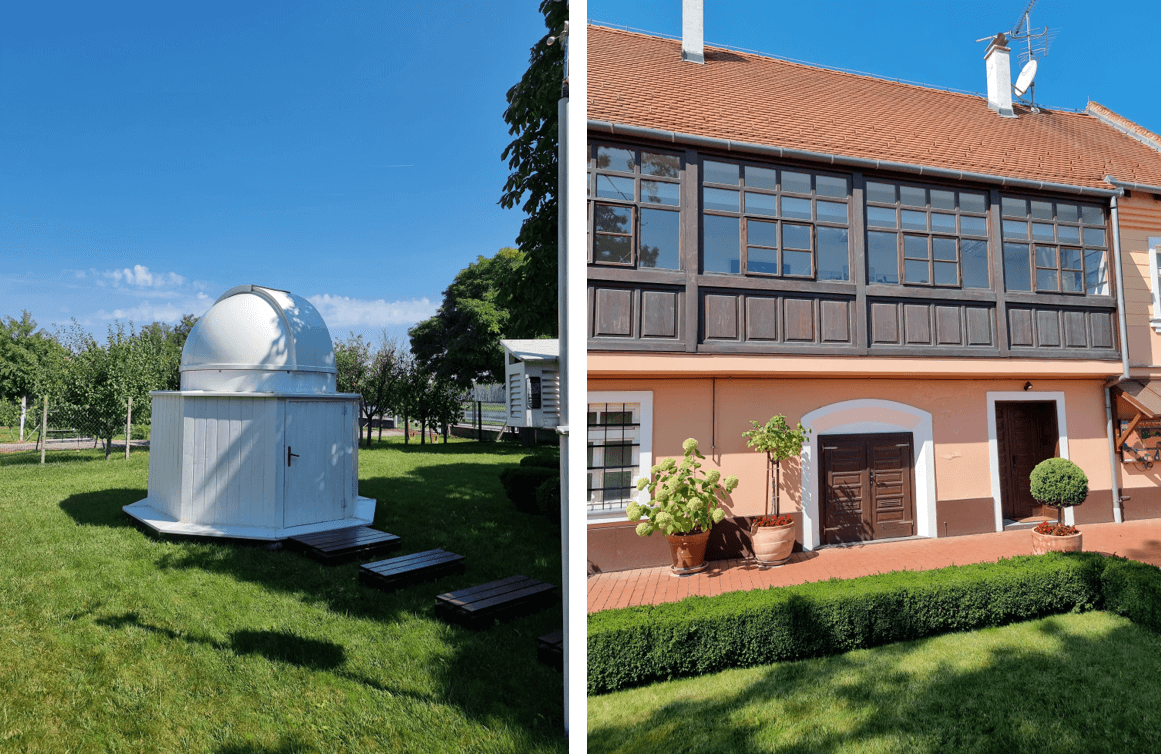
And even though the people of Dalj know, love, and are happy to visit Milutin's house, the vast majority of Croatian people do not, or do not know, that they can visit it too. Not only can you visit the original house and see this magnificent exhibition firsthand, but you can also schedule an educational visit to learn about Milutin's life and legacy, explore the interactive presentations, and even try to find new stars using the telescope. The best part - the visit is completely free. Come on, where else do you get that? To schedule a visit, send an e-mail or call the contacts here.
How good is your knowledge of eastern Croatia? Take the CROMADS test above - how many places do you recognise?
For more, make sure to check out our dedicated Travel section.
Discover the Croatian Danube: An Idyllic Weekend in Dalj
September 30, 2022 - From the canals of Aljmaš; and the slopes of Erdut, after having enjoyed steaming hot fish stew from a hanging pot and wine from the largest barrel in the world, continue your journey east, and you will shortly arrive in Dalj. Another hidden gem of Slavonia and Croatia. A place where the Danube is just the right temperature in the summer, where the fruits taste sweet, and where the stars aligned to make it the birthplace of one of the greats.
The first signs of life in Dalj date back to the Bronze Age, around 1350 BC. One of its first names, from the Roman times, was Teutoburgium, and its significance was that it was positioned on one of the four main routes towards Dalmatia. Just like the rest of eastern Croatia, Dalj underwent changes in power and demography, resulting in a rich heritage mix of Catholic, Orthodox Christian, and Ottoman influences. The Christian religions remained and are both still an essential part of Dalj’s culture. The silhouette of the village is adorned with Catholic and Orthodox churches, and the church of St. Demetrius is the largest cathedral of the Serbian Orthodox Church in Croatia. Right next to it, an inviting palace with a garden full of flowers – the summer residence of the church’s patriarchs found its home. Naturally, its location is prime, with only a green park between it and the Danube.
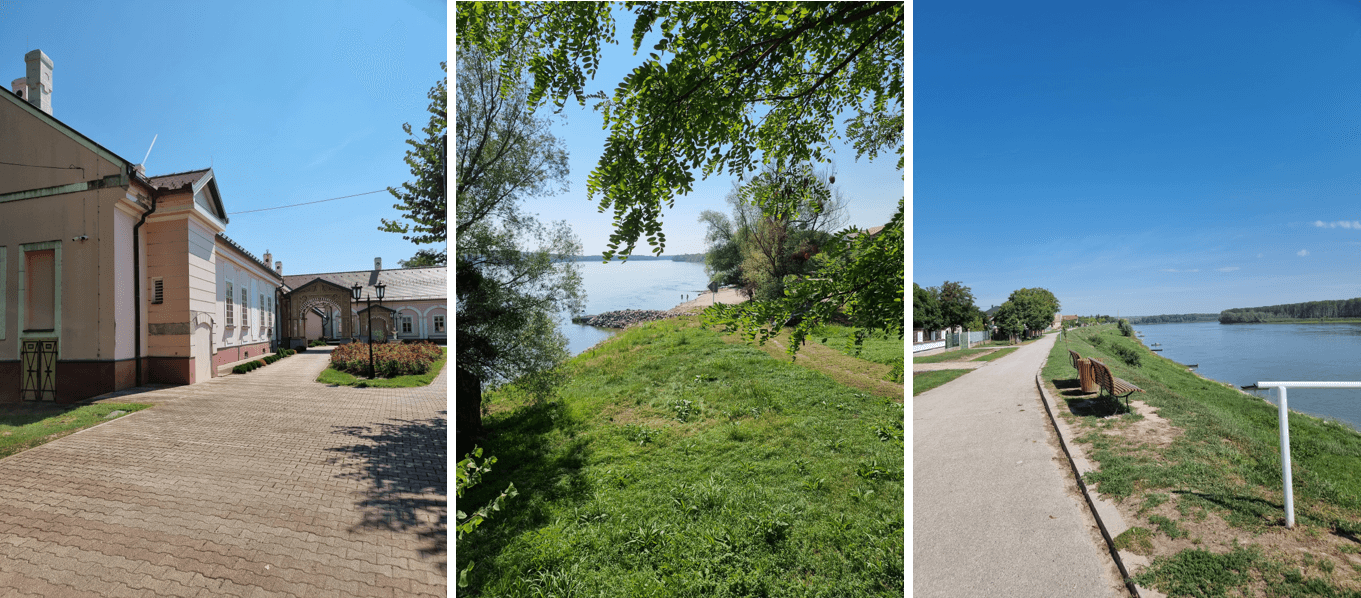
Author
The Danube, of course, is what life revolves around. The geography of the village has remained such that people from every part of the village can reach the riverbank quickly and straightforwardly. They go there to walk, relax, swim, fish, or enjoy nature. In the summer, the Dalj beach is the absolute centre of all activity. Gathering from all parts of the village, families, and friends either walk, swim, or let the Danube take their boats there. Once they’ve reached the sand and the shade of the banks, the party can start. Whether beach volleyball, music, drinks, or barbecue, something happens daily to keep everybody’s minds off the summer heat.
Just like Aljmaš and Erdut, Dalj is an excellent stop on the Danube not only for refreshment and activities but for wine and food. The local gastronomy shines bright in Stari Mlin, a restaurant serving the best of Slavonia daily, with live music on weekends, occasional events, and special celebrations. It is a trendy venue for team buildings as well. There is plenty of room both indoors and on their summer terrace.
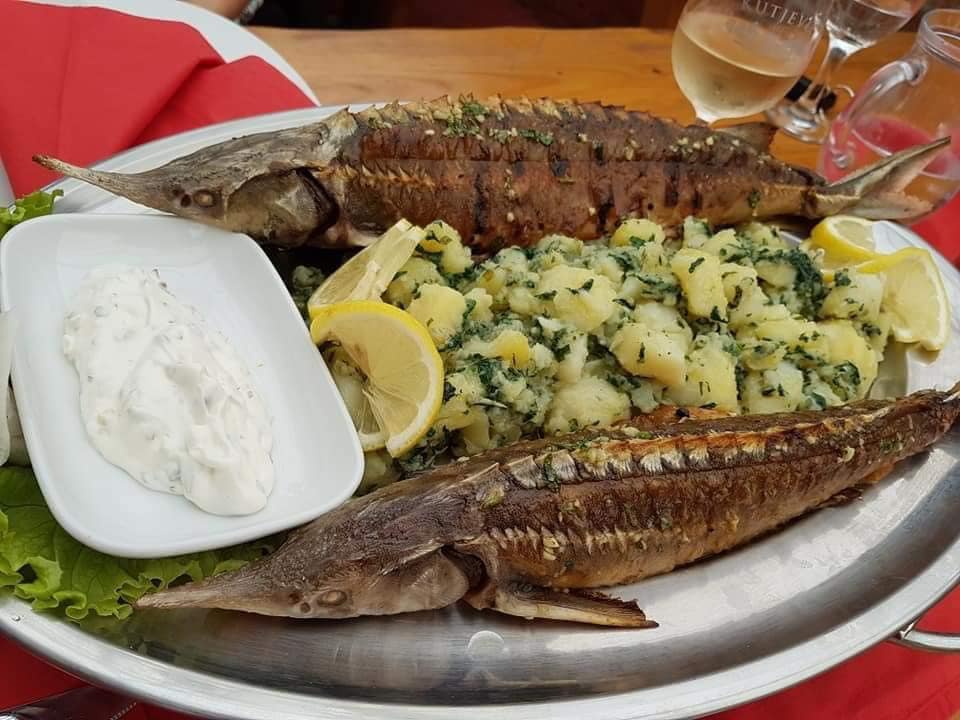
Restoran Stari Mlin
The menu celebrates the Danube, with carp, catfish, and perch taking centre stage and plenty of meat dishes in supporting roles. We recommend calling in advance to try out their famous traditional catfish stew or fire-roasted carp. Even if you’re not feeling hungry, sit down for dessert or coffee and enjoy the view and the Danube breeze.
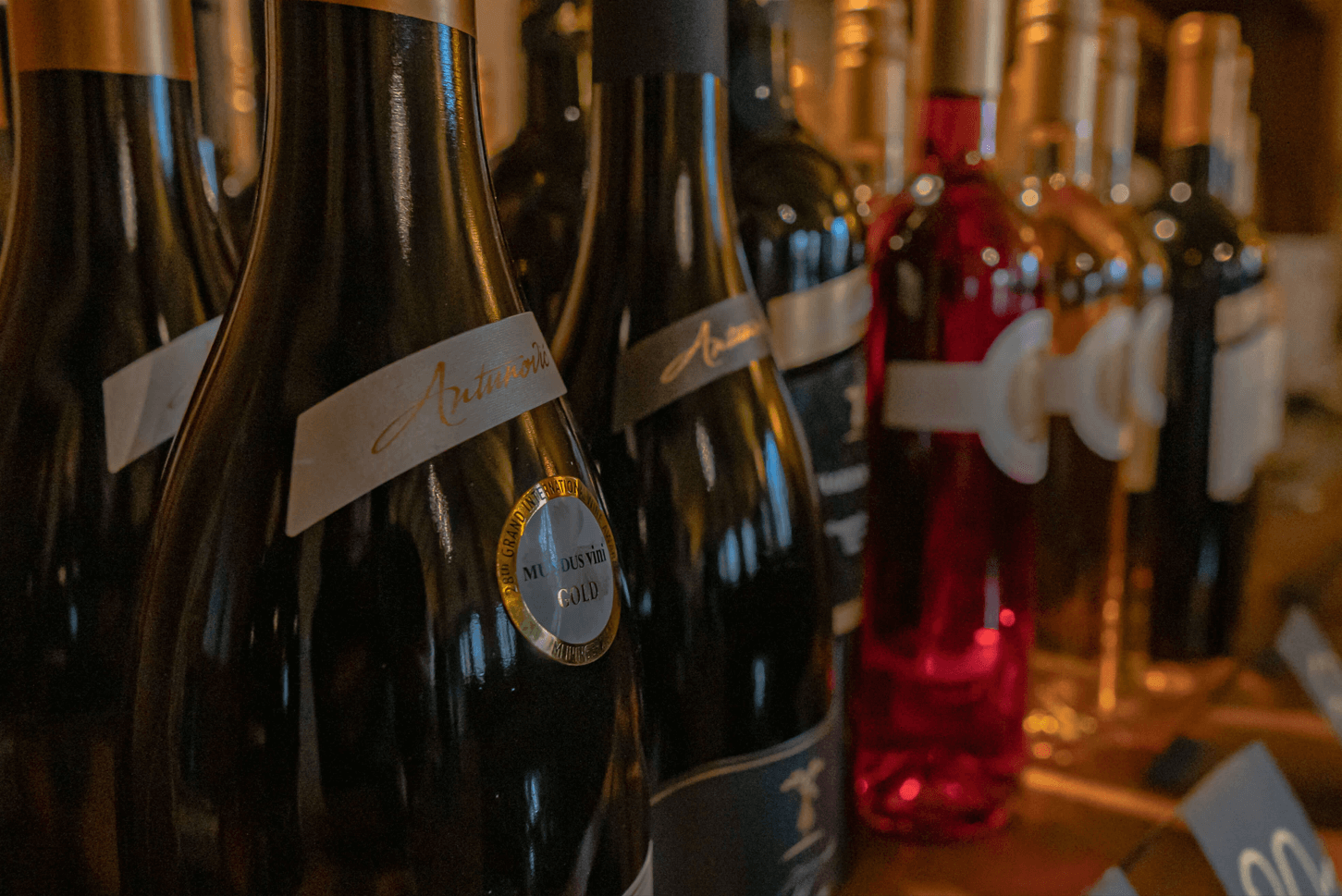
Steve Tsentserensky
After a delicious filling meal, it would be a mistake not to let your heart take you straight to wine. A special surprise awaits in Dalj. Head over to the Antunović winery, the first female-owned and established Croatian winery, and find out why it became one of the most awarded wineries in Croatia.
If you’re looking for a specific reason to visit Dalj, where you can experience the lovely autumn atmosphere while learning about the local traditions, try the Fair of Old Crafts and Customs and Gužvara Fest. Use the chance to try out traditional tools and witness true craftsmanship or taste some of the local delicacies. The emphasis lies on Gužvara – a traditional yeast dough dessert filled with ground walnuts or poppy seeds. It is a must-serve at Slavonian feasts and gatherings. Saturday, the 8th of October, is the day.
Tradition is an integral part of life in Croatian villages. Following suit, the big days in Dalj include kirbaj (also known as kirvaj), Crkveni God for the Catholic population, and Krsna Slava for Orthodox families. Both events celebrate the village's and family patron saints, respectively.
Finally, let us not forget to mention Dalj's greatest - Milutin Milanković. This mind of the future, an influential mathematician, physicist, and astronomer, was born in Dalj, went on to travel Europe for his studies and work, but came to some of his most important conclusions right in his backyard, inspired by the Danube and a big pine tree, which still stands there 143 years later. Stay tuned to find out more about, possibly, Croatia's most underrated museum.
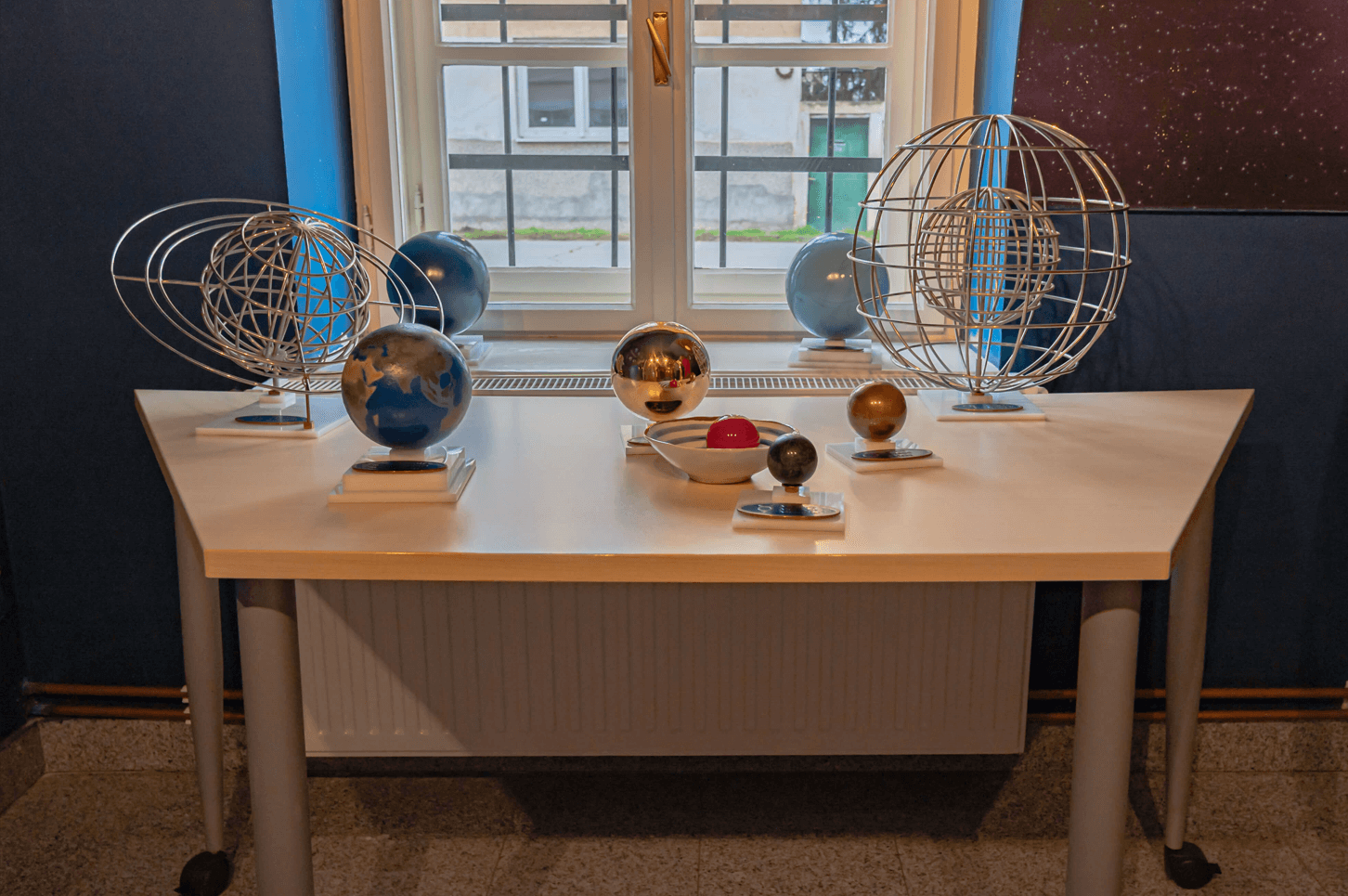
Steve Tsentserensky
Special thanks to Jovana, the Erdut Municipality Tourist Board directorErdut Municipality Tourist Board, and the perfect host for our day in Dalj.
How good is your knowledge of eastern Croatia? Take the CROMADS test above - how many places do you recognise?
For more, make sure to check out our dedicated Travel section.
Bozinovic: Dalj Commemoration Shows Firmness of Those Who Defended Country
ZAGREB, Aug 1, 2020 - Deputy Prime Minister Davor Bozinovic on Saturday attended the 29th annual commemoration for the defenders of Dalj, saying their deaths were a tragic but proud moment of the Homeland War which showed the firmness of those who defended their country with the strength of heart and true patriotism.
He said that "in 1991, before the formation of the Croatian army, police forces played a very significant part in resisting the enemy."
"The police officers of this station were helped by members of the National Guard Corps, Civil Protection and the people of Dalj," Bozinovic said, adding that one tank shell fired today in 1991 killed 20 police, 15 guards and four Civil Protection members.
"But they didn't think that the atrocity they committed here would be one of the decisive events for raising the morale of the Croatian people in defending and liberating their country."
We should be proud of the Croatian courage, perseverance and strength of unity because this tragedy determined the further course of the Homeland War, Bozinovic said.
The defence of the Dalj police station was one in a series of confirmations of the dedication of the Croatian police to the enforcement of the law and the preservation of the constitutional and legal order, democratic values and the integrity of our country, he added.
Wreaths were laid outside the police station and Mass was celebrated for the victims at the Dalj church.
Reporters asked Bozinovic, who also serves as interior minister, about war crimes investigations and the war missing.
He said the investigations and the search for the missing was a priority of the government, the relevant ministries and other institutions. "There is intensive inter-departmental cooperation which has already delivered results and I'm sure it will do so in the future as well. When it comes to Dalj, criminal complaints have been filed and they are being processed."
Honouring all innocent war victims is a civilisational achievement
Bozinovic was asked to comment on Homeland Movement MP Ivan Penava's statement that this year's Grubori commemoration was a political trade-off and equating the 1995 Operation Storm and individual crimes.
He said the government had been continuously working on building political relations in Croatia.
"A responsible policy should create conditions so that we can turn to future challenges as successfully and with as little baggage from the past as possible. Talking about equating is groundless. The Storm anniversary is one of the most important dates in Croatia and will remain so, so one can't talk about any equating, nor is it appropriate to talk about that in that way. Honouring all war victims is a civilisational achievement."
New Shipyard to Open in Eastern Croatia
ZAGREB, March 3, 2018 - A group of Croatian, Dutch and Belgian investors plan to build a modern shipyard in the eastern Croatian town of Dalj where large river boats, specialised vessels and luxurious yachts will be built, and they plan to open 140 jobs in the initial phase of the project, a press conference was told in Osijek on Friday.


